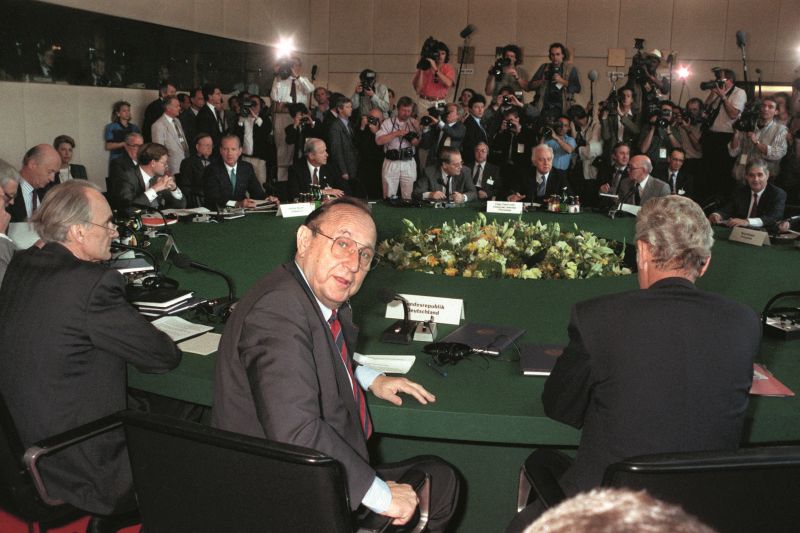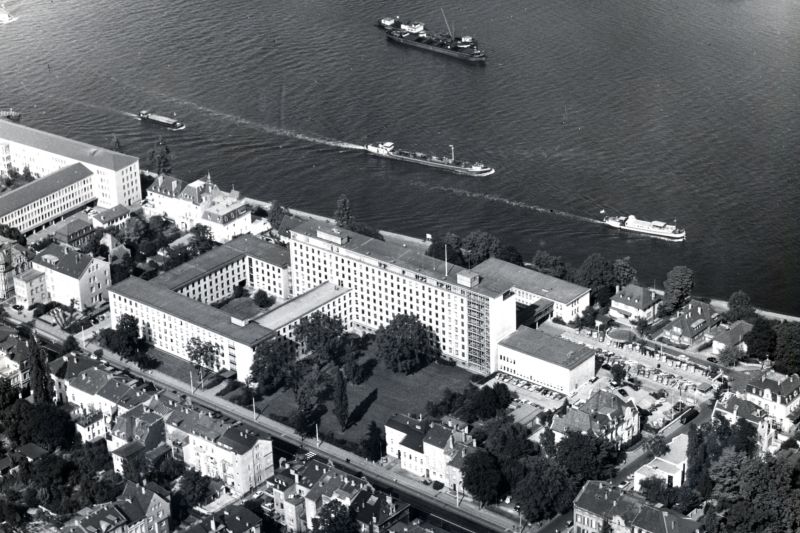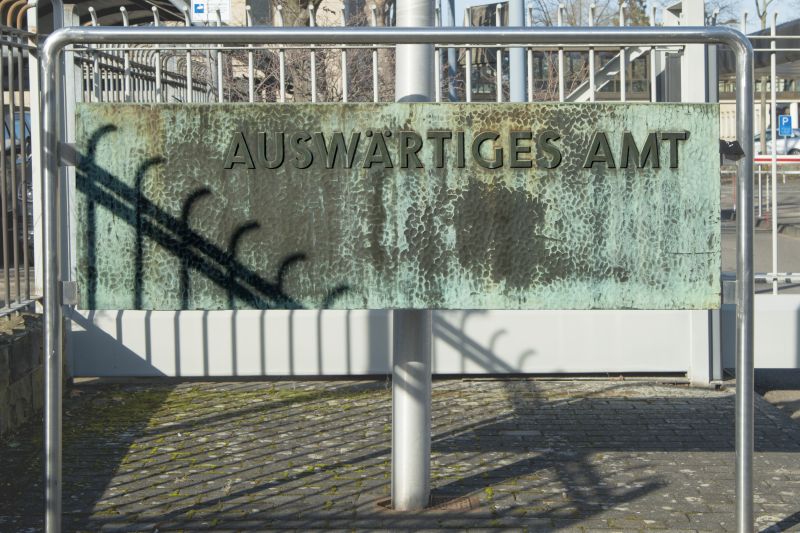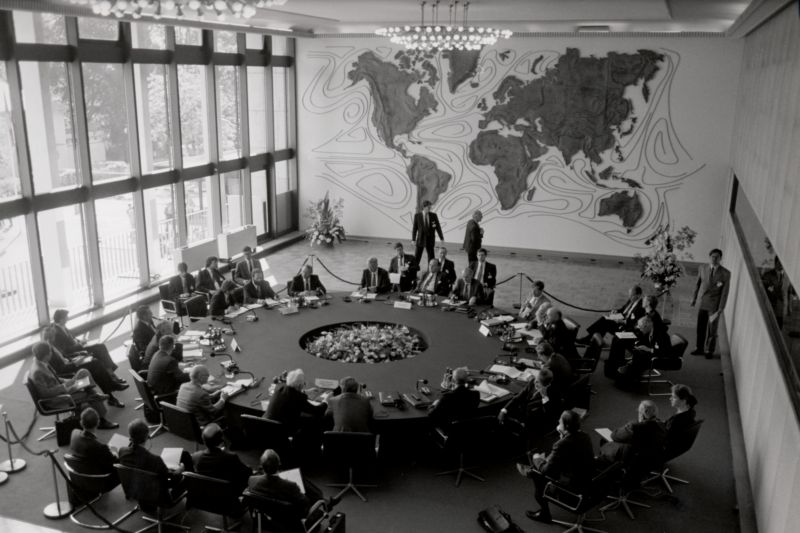The solution to his problem took the form of a nine-storey building that was as gargantuan as it was austere, with a glass staircase and exactly 1,112 windows. It was located near the Chancellery and was easily accessible to and from Bad Godesberg, where many embassies were located, via a federal highway (the so called Diplomatenrennbahn, “diplomats’ race track”). The official building trade-magazine Die Bauverwaltung even went so far as to prophesise, upon completion of the building in September 1955, that “the usefulness of this office complex will continue to exert a strong pull far exceeding its current purpose.”
Personnel recruitment proved to be a delicate balancing act during the early years of German foreign policy. A diplomat named Ulrich Sahm noted in his memoirs that many key diplomatic posts went to former Third Reich officials. “Whether consciously or unthinkingly, [these officials] were either deeply implicated in the horrors perpetrated by the Nazi regime; or their futile efforts to remain morally upstanding human beings left them spent.” As the result of a series of articles that appeared in 1951 and 1952 in the newspaper Frankfurter Rundschau, a special parliamentary committee was formed to look into the issue of former Nazis holding key government positions. But even the new building’s architect Hans Freese was tainted by Nazism, having at one time worked for Hitler’s chief architect Albert Speer, the general building inspector for the Reich’s capital city of Berlin, and was slated to design Speer's private home, among other things.
The policies of integration with the West and reconciliation during the Adenauer years; the new eastern and détente policies of Brandt and Scheel; Hans-Dietrich Genscher's diplomacy on the German question in 1989 and 1990; and European integration in the lead-up to the 1992 signing of the Maastricht Treaty – all these events bore witness to a new and different Germany. In 1990, a round of what were termed the Two Plus Four negotiations was held in the Foreign Ministry’s Weltsaal hall, between Germany and the victors of World War II, on the "external dimensions of the establishment of German unity.” These negotiations resulted in full national sovereignty being conferred on Germany under international law.
The building has served as a secondary official seat for the Foreign Ministry since Germany’s capital relocated to Berlin. Part of it has also housed the newly established Federal Office of Justice since 2007.



